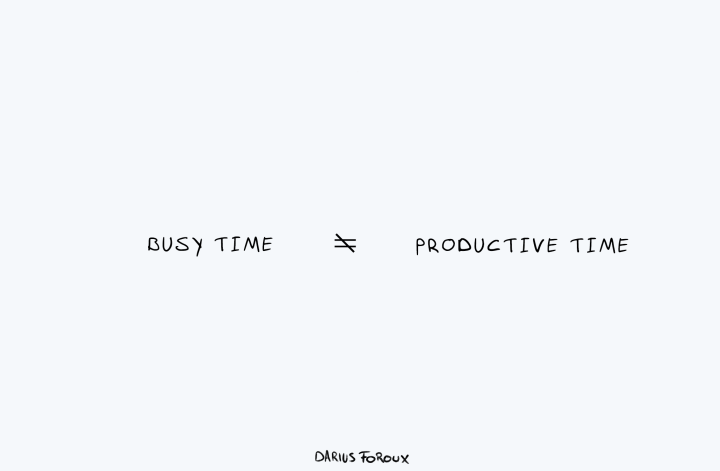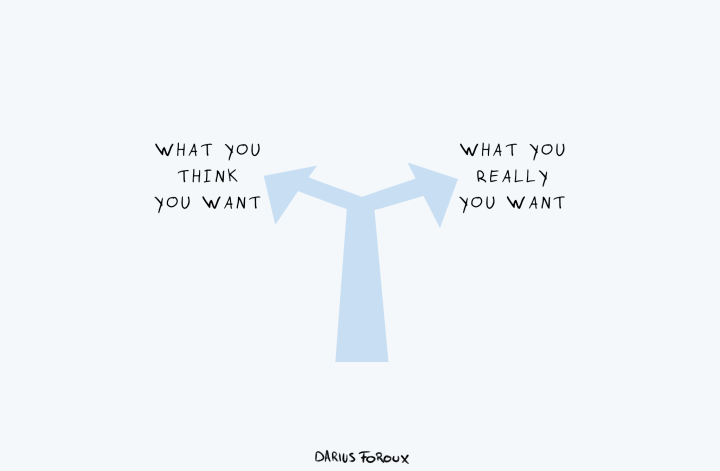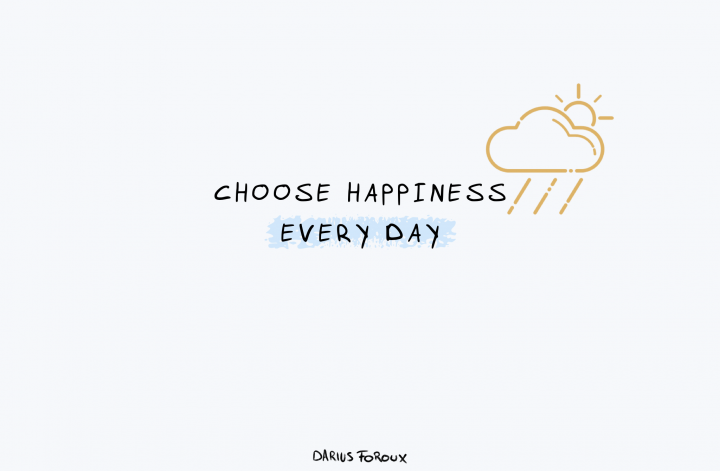Being productive doesn’t mean utilizing every waking minute to do productive things. That’s why I don’t like “hustle culture.” I don’t need to be busy every minute.
Sometimes, spending a day doing various things around the house, maybe taking walk or doing some reading, can actually be more useful. These moments help us examine our lives.
But high achievers and ambitious people often have a problem with doing nothing. They feel like they need to be productive every single minute. So they get busy with minor things.
For example, when highly productive entrepreneurs have spare time, it’s not unusual to see them making minor improvements to their business. They optimize their websites, clean up their brick-and-mortar shops, do more research on their industry, and so forth.
It’s great to have the desire to improve yourself and your career. But you also don’t want to be too extreme with busywork.
In his commencement speech at the University of Southern California1Source: YouTube, the billionaire Charlie Munger said that the one quality he especially admired about his business partner, Warren Buffett, was Buffett’s ability to be a lifelong learner.
“If you take Warren Buffett and watched him with a time clock, I would say half of all the time he spends is sitting on his ass and reading.”
Having that time and space to think allows us to step back and look at the bigger picture. As the platitude goes; work on your business, not (only) in your business.
Good vs bad waste
Doing something that helps us, in the long run, is actually not a waste of time when you think about it. So how do you “waste” your time wisely?
Avoid spending too much time on social media. We both know that’s not good for you. It’s also a good opportunity to switch from being a consumer to a creator. As a creator, you want to spend time making something. At the same time, you can also discover new insights and inspiration.
Some time ago, I was talking to a friend who asked me for some book recommendations. He said he wanted something to read, but had no specific topic in mind. Which is also why he didn’t know what to search for.
I suggested he check out a local bookstore instead. And he can pick whatever got his interest. He ended up spending half a day in the bookstore, browsing various books.
And that’s how he discovered his passion for trail running: When he read the book, The White Spider by Heinrich Harrer. (Harrer was an Austrian mountaineer. The film, 7 Years in Tibet, was based on Harrer’s autobiographical book of the same name). The book inspired him to join mountain hiking groups on the weekends. And from there, he upgraded into doing trail marathons.
The next time you’re low on energy, or you feel like you’re on autopilot, or you’re stuck on something, you can try to focus on bigger fundamentals in your life or career.
- Instead of worrying about the next email or social media post, take the time to read a few good books. Your next business idea or design inspiration just might come from that.
- If you’re working on a new diet, this could mean not worrying so much about that Saturday night you went out drinking with friends. Instead, focus on the 20 other meals you’ll be taking throughout the week. The impact of those other meals is much more significant.
- For creative writers (or those who use the written word to persuade people to act), you can spend a day strolling or talking to other people, or even watching a documentary. Personally, I’ve seen that stepping away from writing for a short while can improve my ideas.
Killing time with intention
While writing my latest book on investing and stoicism, I did some research on the investor Mohnish Pabrai, founder of Pabrai Funds and author of The Dhando Investor. He is well known for having spent more than $650,000 to have lunch with Warren Buffett. And for trying to run an empty calendar.
I’ve observed that Pabrai has stoic tendencies with his investments. He manages his emotions when it comes to investment decisions. And he sticks to his plans, whether the market is up or down. He adopted what Buffett said about investing being a no-called-strike game.
“The stock market is a no-called-strike game. You don’t have to swing at everything–you can wait for your pitch. The problem when you are a money manager is that your fans keep yelling, ‘Swing, you bum! ‘”
When it comes to achieving things, people often think about action. But as Buffett said, it’s also about waiting for the right pitch.
While other people busy themselves scampering through thousands of companies to invest in, Pabrai simply sits back when he can’t find a company that he knows for sure will increase his profits tenfold. He doesn’t concern himself with opportunities that might only bring moderate margins.
The mathematical statistician Nassim Taleb, author of Fooled by Randomness, a book about the randomness of success and failure, once observed:
“The only measure of success is how much time you have to kill.”
Successful individuals understand that personal energy is limited. So it’s important that we only spend our energy and time on things that matter most.
So what does this mean in daily life? It’s all about being aware that it’s okay to kill time. I call this: Killing time with intention.
That’s because if you waste time deliberately, then it’s not a waste. You did it with intent. And the intent is to enjoy your life.
To be productive in the long term. And not to kill yourself by overworking for a few years and then burning out for an even longer time.
So, what are you doing this evening? Nothing?




